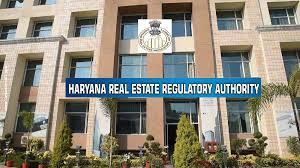M.L. Singhal, J.@mdashNasib Chand, the petitioner, is Octroi Clerk in Municipal Committee, Dhuri, vide order Annexure P/3 dated 3.7.1996, he was placed under suspension by Executive Officer, Municipal Committee, Dhuri. The petitioner, Nasib Chand, has thrown challenge to this order of suspension brought about by Executive Officer, Municipal Committee, Dhuri through this writ petition and has prayed for the issuance of writ of certiorari quashing this order and thereby ordering the respondents to allow him to continue to hold the post of octroi Clerk. It is averred that this order is without the competence of the Executive Officer.
2. The Municipal Committee, Dhuri, through its Executive Officer, has resisted this petition and has averred that in the year 1931, Octroi Clerk was getting salary between Rs. 25/- to Rs. 45/- when the Panjab Municipal (Executive Officers) Act, 1931 was enacted. By virtue of the provisions of the Punjab "Municipal" (Executive Officers) Act, 1931, every employee of Municipal Committee whose salary ranged between Rs. 25/- to Rs. 45/- was subject to the disciplinary control of the Executive Officer of the Municipal Committee. If due to rise in the price index, the salaries have shot up, that does not mean the Executive Officer ceases to be the disciplinary authority of such of employees who were subject to his disciplinary jurisdiction when the Act was enacted. Intention of the Legislature is that Executive Officer should have disciplinary control now also over all those employees of the Municipal Committee whose salary ranged in the year 1931 between Rs. 25 to Rs. 45 per mensem. If in the year 1931 when the Act was enacted, Octroi Moharir was amenable "to the control of the Executive Officer, there should be no reason why he should not be subject to the disciplinary control of the Executive Officer when there is no amendment in the Act, taking the Octroi Moharirs outside the purview of the disciplinary control of the Executive Officer."
3. Section 39(1) of the Punjab Municipal Act, 1911 reads as follows:-
"39. Employment of other officers and servants.
(1) Subject to the provisions of this Act and the rules and bye-laws made thereunder, a committee may, and if so required by the State Government shall, employ other officers and servants and may assign to such officers and servants such remuneration as it may think fit, and may suspend, remove, dismiss, or otherwise punish any officer or servant so appointed.
Provided that no person who is a member of a committee shall be employed by a committee during the tenure of his term and for a period of twelve months thereafter.
(2) Nothing in this section shall prevent the State Government from making any provision in the rules under this Act for the reservation of appointments or posts and to lay down methods to secure such reservation in favour of members of the Schedule Castes, the Scheduled Tribes and such other backward classes of citizens which in the opinion of the State Government, are not adequately represented in the services under the Municipal Committee."
Section 4 of the Punjab Municipal (Executive Officers) Act, 1931 lays down the powers of the Executive Officers. Section 4 of the this Act reads as follows:-
"4. Powers of the Executive Officer. In a municipality or notified area as the case may be in which an Executive Officer has been appointed-
(a) the executive power for the purpose of carrying on the administration of the municipality or notified area as the case may be shall subject to the provisions of this Act and of any rules made under this Act, or under the Municipal Act, vest, in the Executive Officer;
(b) the powers conferred and duties imposed upon, the functions vested in, and the objections to be tendered and notice given to the committee under the sections of the Municipal Act mentioned in Schedule I, shall not be exercised or performed by, vested in, or be tendered or given to the committee, but may be exercised or shall be performed by, or shall vest in, or shall be tendered of given to the Executive Officer, provided that -
(i) the power conferred by section 30 of the Municipal Act shall not be exercised by the Executive Officer and may be exercised by the committee in respect of the appointment of any officer or servant, of the committee to a post for which the monthly remuneration exceeds Rs. 25, and in respect of the power of removal or dismissal of any officer or servant whose monthly remuneration exceeds Rs. 45 provided that the Executive Officer shall dismiss an employee if required by the committee to do so;
(ii) XXX
(iii) XXX
(iv) XXX
4. It is thus clear that the power of dismissal can be exercised by the Executive Officer of a Municipal Committee in respect of an employee whose monthly remuneration is less than Rs. 45. If the monthly remuneration is more than Rs. 45, then the power of dismissal shall be exercised by the committee. Power of dismissal or removal embraces within its ambit the power of suspension also.
5. Nasib Chand, Octroi Clerk, was drawing much more than Rs. 45, and therefore, he could not have been suspended by Executive Officer, Municipal Committee, Dhuri.
6. Earlier, a Single Bench of this Court in CWP No. 5406/1990 vide judgment Annexure P/4 held that power to suspend any employee vesting in the Executive Officer of a Municipal Committee can be exercised only if the employee''s remuneration is not more than Rs. 45 per mensem. Nasib Chand could not be suspended by the Executive Officer, Municipal Committee, Dhuri, when he was drawing emoluments much more than Rs. 45 per mensem.
7. While taking this view, the learned Single Bench relied upon Had Chand v. Shri D.R. Bawa and Anr. 1977 PLJ 365.
8. Faced with this situation, the learned counsel for respondent No. 2 submitted that the Executive Officer has been given this power which is in the nature of an executive power to enable the municipal administration to be carried on smoothly and, therefore, the suspension order brought about by Executive Officer through order Annexure P/3 should be upheld. We are unable to uphold this contention of the learned counsel for respondent No. 2 when there is no power vesting in the Executive Officer to suspend any employee of the Municipal Committee whose monthly emoluments exceeds Rs. 45.
9. If the view which the learned counsel for respondent No. 2 wants us to take, is taken, that would tantamount to incorporating an amendment in the Punjab Municipal (Executive officers) Act, 1931 which has not been amended so far so as to convey that now so much shall be the monthly emoluments instead of Rs. 45 per mensem.
10. For the reasons given above, this writ petition succeeds and is accepted and the impugned order Annexure P/3 is quashed and the respondents are directed to permit Nasib Chand to work on the post of Octroi Clerk.
11. Petitioner, Nasib Chand, shall have Rs. 1000/- from respondent No. 2 as costs as respondents No. 2 has driven him to this uncalled for litigation when it had been decided by a Single Bench of this Court that the Executive Officer of a Municipal Committee cannot suspend an Octroi Clerk whose monthly emoluments exceed Rs. 45.

